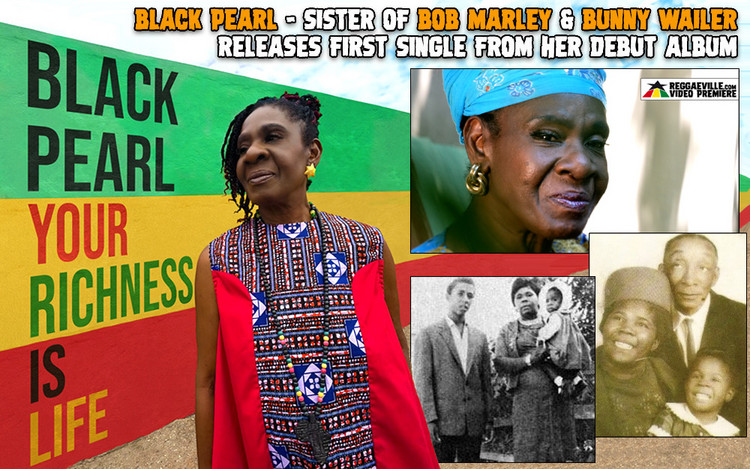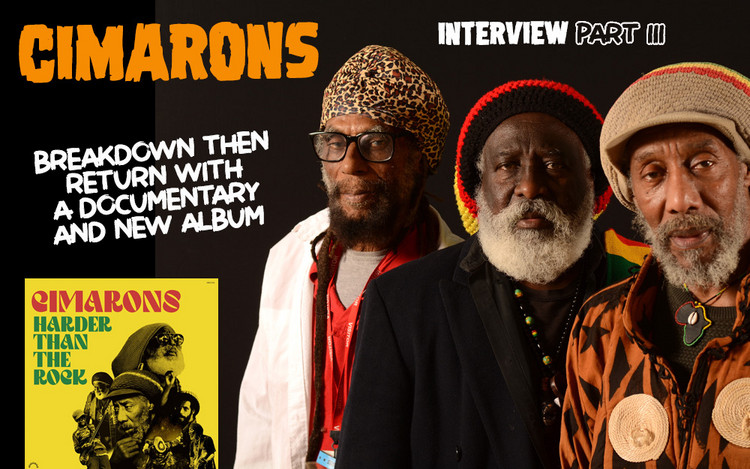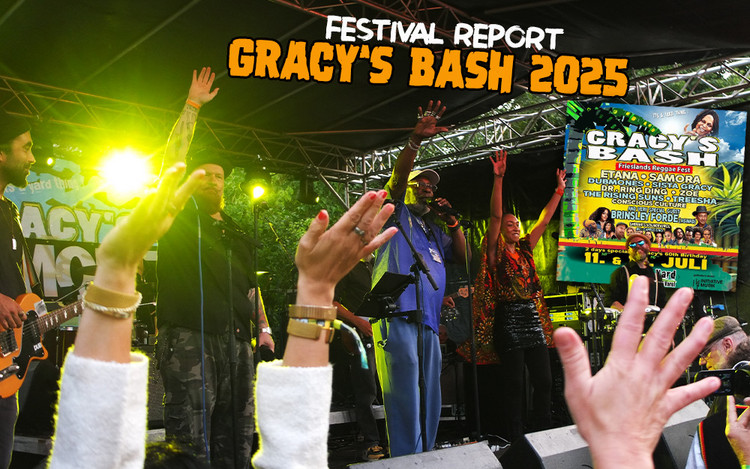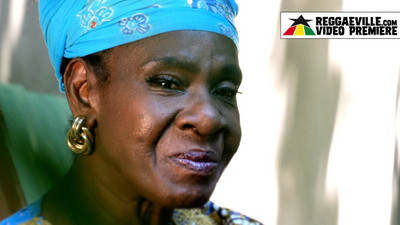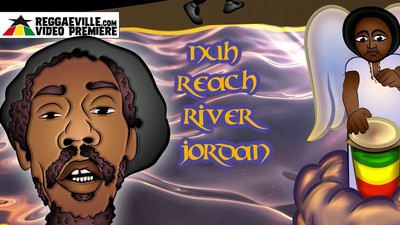Mr. Williamz ADD
Interview: Mr.Williamz
02/05/2012 by Angus Taylor
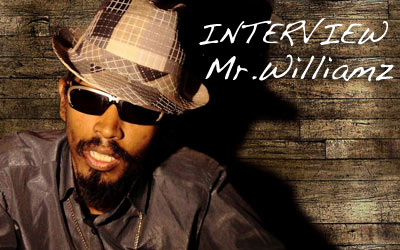
The London-born, Jamaica-raised deejay Mr. Williamz is one of the ascendant microphone talents on the world reggae dancehall scene. Exposed to yard sound system culture from a tiny age he began toasting as Kool Kat in honour of his stylistic resemblance to Supercat and other dons of the 80s. His old-meets-new approach is perfect for the man who discovered him, Curtis Lynch Junior at Necessary Mayhem, where has become all but synonymous with the label, riding every rhythm they press. Just a year after his UK debut the newly named Mr Williamz had his first hit for Curtis, Babylon in Helicopter, and was chosen as BBC UK Artiste of 2008. Recently he has been flexing his lyrical creativity and laidback hypnotic delivery further afield, being one of the few artists to have two tunes on Scotland's Mungo's HiFi's latest album Forward Ever and recording a free mixtape with Gambia's Mandinka Warrior, Dancehall Nice Again. Softly-spoken and stylishly attired, Mr. Williamz met Reggaeville for a coffee in West London to talk about his Christmas tour of India, his forthcoming album and how he helped Curtis discover the artist Franz Job.
You've been out in India with Mungo's HiFi and India's first sound, Reggae Rajahs. Tell us what you got up to there.
We did a tour of five cities throughout India over ten days doing seven shows. The first city was Bombay then Bangalore then Poona, Goa and New Delhi. A lot of the time I was travelling so I didn't really get to see a lot of places but I did get to stay in Goa for three days and that was amazing. Chilling on the beach. The vibes in Goa were nice and relaxed.
How does India compare culturally to Jamaica?
In many ways there are a lot of similarities culturally. The people are very cultural and very spiritual and also very musical. They have the drums in their culture as well so when I see the people dancing they do it very well - like natural. It's like they know it because it's similar to what they have with the tabla drums. You even see people with dreadlocks - the holy men. The food is also nice. And a lot of people speak English so it's like Jamaica in that way.
Reggae Rajahs have really put India on the world reggae map. How would you describe Indian reggae scene?
It's in a growing stage. The vibes in the parties is very nice. It's a different vibes. What I noticed in the parties was you had older people and younger people all mixed. I'd see a lady in a sari there with her husband dancing. It was a different look for me from my point of view on the stage. Women in saris and big man all enjoying the reggae vibe. Just enjoying the culture. You don't see that kind of vibe in London. And there are rhythms being made out there. I met an mc named Delhi Sultanate he opened the show for us in Delhi. A good mc with good music and good message. He has some good production also so we're going to be doing some work this year.
You describe your style as influenced by Nicodemus and Supercat yet you are one of the hottest deejays today.
I grew up around this type of music so I try to bring the same vibes with a fresh flavour. Maybe with some fresh concepts like when I did the song Computer Age with Mungos. We're using some of the Nicodemus style - saying Computer Connection [Instead of Boneman Connection - and we're bringing it with a new concept because a lot of the kids don't get to hear this kind of style on the radio and stuff like that.
When I was young, people from outside the culture saw the 80s bad time for reggae. Now you get the same sort of people complaining that nothing today is as good as the 80s.
I grew up in the 80s so for me that's the thing. My dad would be playing music from the 70s like Big Youth but I was more eager to hear Shabba Ranks or Ninjaman or these artists in my time. But when I got to grow more I got to appreciate more of the 70s music also because I grew up with it in the house. Subliminally and subconsciously it's already in your bones.
You were born in London, but your dad moved with you and your brother to Jamaica. What did that give you in terms of your personal and musical education?
Everything. Because your child memories and child moments are what's going to build you. So growing up in Jamaica with my father being a Rastaman I grew with the music around me and the freedom to go to the dancehall which was five minutes from my house. From age seven I was going to the dancehall and watching the sounds prepare. Watching them string up the sound, wire the system, test it out and warm it up. Even touching the microphone and hearing my voice through the big speaker and saying "Yeah - this is exciting".
You've talked about the need for deejays to learn their craft. Describe your education.
We used to get our cassettes and that was like the dancehall library where you go and study your books! Then you'd go to the dancehall and do your practical and see it happening. Nowadays we don't really have the same vibe because in those days you had to warm up the equipment they used. They had to play a few hours in the day time when they'd string up from 2 o clock and be playing right through until 6-7-8 o clock when the sound was ready and the bass could be turned up! These early hours were the time when we got to touch the microphone as kids. They'd say "Test the microphone" and you'd hear your voice and your friends would say "You sound good". Then we'd go home, get ready, put on our clothes and go back to the dance for the party.
So when you left deejay school in Jamaica was your early time in the UK like college?
I was aged 16 when I got back to London so I was already intrigued and interested in this sound business. So the first thing me and my brother did was make our own speakerboxes because we'd watched and knew how to make speakers. So we set up a sound system in our room - two record players, mixer, amps, sound effects, microphone, echo chamber, speakerbox, tweeter - and started buying records and just vibing. So my house it was coming like a dancehall every day. My friends would come check me and vibe out on the rhythms and my mum was cool with the noise.
Tell us about your first venture into recording.
My name at the time was Kool Kat and my tune was called Girls Rampage. Me and a friend Baby Sam who is now Sam Dash who shared the same vibes and interests put some money together and pressed a record, put it out and distributed it ourselves as teenagers. He got the rhythm made by Mafia and Fluxy and this was in the days of 24 reel so we had to book the studio and record, then book it again to mix. That was when we realized it's hard for young kids to get the money together because it took us two years to get the record out. Once it was out we found out that distribution is such a big problem - we had 300-500 records in the house and we had to drive around and maybe we would distribute 100. That was a lesson for me and from then I wanted to be recorded but I realized you can't just put out a record like that - you have to have some money and a more organized plan.
You got your big break through Curtis Lynch at Necessary Mayhem. How did he get involved?
I became a dad so I stopped investing my time in music because I needed to have some money and the music wasn't paying - we were just doing it as kids as a hobby. So for about three years I worked. It wasn't really satisfying me - but at the time it had to be done. So after three years I'd saved some money to buy some equipment to do my own recording. I'd give my mixtapes out on the street and to local radio DJs and my name started to build up locally. People started approaching me with rhythms and then at the end of 2007 Curtis approached me and said he wanted me to do some work on a track he was working on, Champion Sound. I did a 16 bar because it was a track with Million Stylez and YT so he said "Do a verse" and he liked it and said he was going to send me some other stuff to write to. He sent me Babylon In Helicopter, I wrote to it, he liked it and recorded and when he put it out it went to number one.
You're working with a lot of people now. Will you still maintain with Curtis?
Yeah man! Curtis is a man who's nice to work with because Curtis loves music - simple as that. Some other men love music but other things get in the way sometimes but Curtis no business with that. One time he said we was looking for some male roots singers and I was in Germany and heard this CD from a London singer I'd never heard before called Franz Job. So the next week me and Curtis were doing a show and I said "Remember you wanted some singers? Listen this CD" and Curtis is not a man who will think "But this man doesn't have a big name". He listened and said "This man has good potential, good voice, good songwriting" so he reached out to him and they have been doing some good work.
You put out an EP with Curtis Last Night in 2011. When is the full album coming?
There is a Mr Williamz LP to launch this year. Most tracks are recorded but we still have some to record. So we're still in the process of writing and recording and getting some material ready. I'd say it's half way there.
Mr Williamz appears on Necessary Mayhem - Future Cuts out 7/2/12. Catch him at shows in Italy, Sardinia, Holland, Denmark and Germany in February and March.




